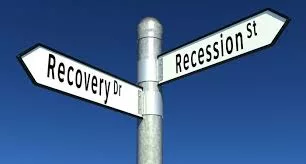The Fallacy Of Quick Fixes: Reassessing Nigeria’s Economic Policies
In the realm of economic policymaking, there exists a seductive allure towards quick fixes and silver bullets. Such is the tale of Nigeria, particularly within the Lagos business circles, where the prevailing consensus among banking and finance professionals, often overlapping with self-professed economic pundits, championed the floating of the Naira and the removal of fuel subsidies as the panacea for igniting economic growth. In response to this clamour, the President took decisive action, only to be confronted with a starkly different narrative unfolding – one marked by soaring inflation, a plummeting Naira, and a host of unintended consequences. The pursuit of economic revitalization, it seems, has plunged Nigeria into a quagmire of its own making.The rationale behind these policies was not devoid of merit. Advocates argued that a floating exchange rate would enhance market efficiency, encourage foreign investment, and promote export competitiveness, while the removal of fuel subsidies would alleviate fiscal burdens and redirect resources towards critical sectors such as infrastructure and social services. However, the flaw lay not in the intentions but in the failure to anticipate the multifaceted repercussions of such measures.Foremost among these consequences is the relentless onslaught of inflation. As the Naira depreciates unabatedly, the cost of imported goods and essential commodities skyrockets, exerting immense pressure on the purchasing power of ordinary Nigerians. Basic necessities become increasingly unaffordable, exacerbating poverty and social inequality. The dream of economic growth becomes a distant mirage when the populace grapples with the harsh realities of everyday survival.Moreover, the depreciation of the Naira has implications beyond domestic inflation. It undermines investor confidence and erodes the credibility of Nigeria’s financial markets on the global stage. Foreign direct investment dwindles as uncertainty prevails, hindering the country’s prospects for sustainable development. The very measures intended to attract investment end up repelling it, as prudent investors recoil from the volatility and unpredictability of Nigeria’s economic landscape.Furthermore, the removal of fuel subsidies, while ostensibly a move towards fiscal prudence, has unleashed a cascade of socio-economic repercussions. The sudden spike in fuel prices cascades throughout the economy, driving up transportation costs, manufacturing expenses, and overall production overheads. This inflationary shockwave permeates every facet of society, disproportionately burdening the most vulnerable segments of the population. The resultant social unrest and public outcry only serve to exacerbate the government’s woes, as it grapples with the fallout of its own policy decisions.In hindsight, it becomes evident that the Lagos consensus was a classic case of tunnel vision – a myopic focus on isolated measures without due consideration for the broader systemic dynamics at play. Economic policymaking is not a game of silver bullets but a delicate balancing act, necessitating a holistic understanding of the intricate interplay between various factors – fiscal, monetary, social, and political. Failure to appreciate this complexity invariably leads to the kind of policy missteps that Nigeria finds itself mired in today.So, where do we go from here?First and foremost, there is an urgent need for introspection and course correction. The government must acknowledge the failures of its policies and demonstrate the humility to reassess its approach. This entails engaging in open dialogue with a diverse array of stakeholders – economists, business leaders, civil society organizations, and ordinary citizens – to craft a more nuanced and inclusive policy framework.Secondly, there must be a concerted effort to prioritize the welfare of the people above all else. Economic growth is meaningless if it does not translate into tangible improvements in the lives of ordinary Nigerians. Any policy agenda must be guided by principles of social justice and equitable distribution of resources, ensuring that the benefits of development are shared by all, not just a privileged few.Thirdly, Nigeria must adopt a more strategic and long-term outlook towards economic management. Short-term fixes may offer temporary relief, but they are ultimately unsustainable in the face of global economic realities. Embracing a holistic development strategy that prioritizes investment in human capital, infrastructure development, and diversification of the economy is imperative for laying the foundations of enduring prosperity.On a final note, the debacle unfolding in Nigeria serves as a cautionary tale for policymakers around the world. The pursuit of economic growth cannot be divorced from the imperative of social responsibility. Quick fixes and knee-jerk reactions may offer temporary reprieve, but they often sow the seeds of their own undoing. True progress lies in embracing complexity, fostering inclusivity, and charting a course towards a more just and sustainable future for all. Only then can Nigeria truly realize its immense potential and emerge as a beacon of hope and prosperity on the global stage.





